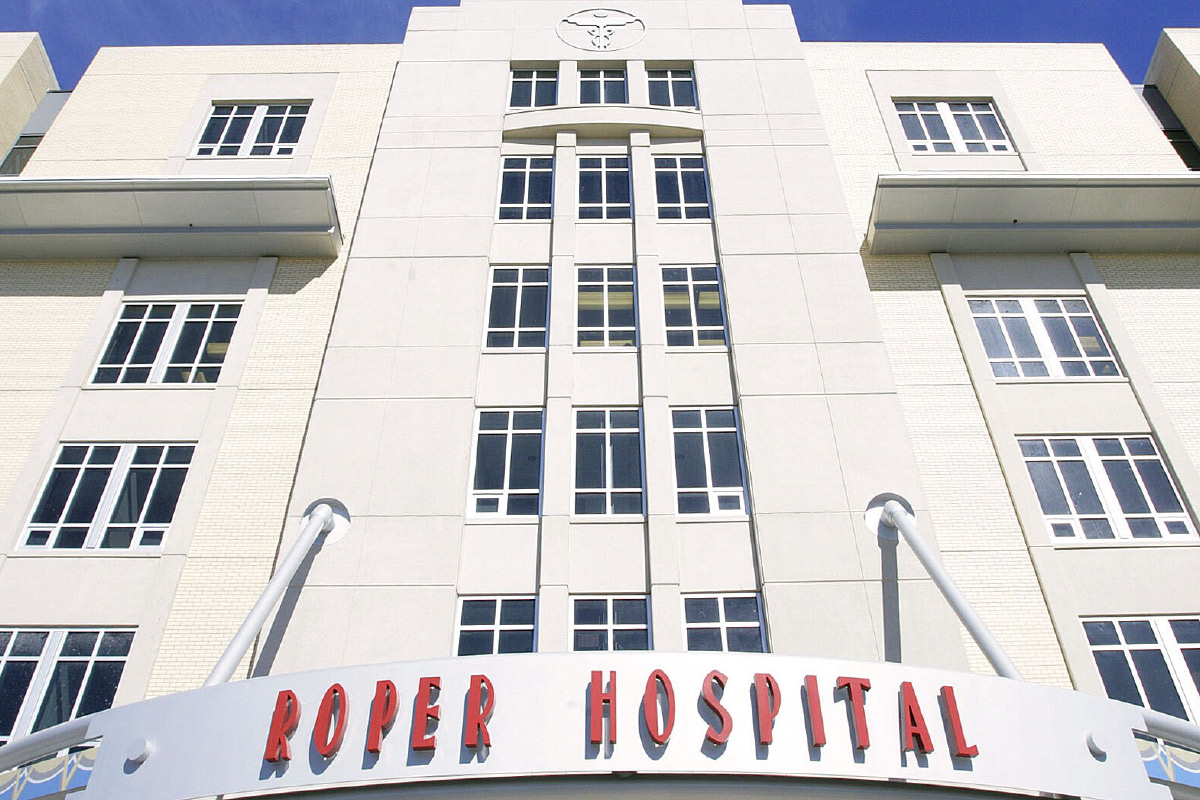
Loving Care from Roper St. Francis: Past, Present & Future
You never think it’s going to happen to you. All the planning, anticipating, googling and packing – then you wake up to your first day of vacation, and something feels off. There is nothing worse than getting sick when you’re far from home.
Google “virtual care in Charleston” and you’ll find Roper St. Francis Virtual Care - https://www.rsfh.com/virtualcare . Within a minute you’ll be in line for much needed advice. Your urgent care visit professional will take it from there. You’ll be feeling better soon – look out King Street!
With Charleston being a major tourist area, many people often find themselves frequenting urgent-care centers for illnesses. Roper St. Francis Healthcare (RSFH) has made access much easier for visiting tourists.
For our tri-county community, RSFH continues to plan for the future with Colonel Thomas Roper’s 1845 statement in mind: "to treat all sick and injured people without regard to complexion, religion, or nation" Colonel Roper added $30,000 to that statement, and in 1856, the first Roper Hospital building
opened its doors for patients.
Craig Self, Vice President of Strategic Planning and Business Development for Roper St. Francis Healthcare, started his career in health care by riding the streets as a licensed paramedic. Self knows a thing or two about saving lives, and doing it quickly. He’s the professional you want making decisions, because he’s actually touched patients. In both Georgia and Ohio he developed education, training, and quality improvement programs for EMS agencies, and provided prehospital and emergency department trauma care. Access to care is the number one focus for Craig Self.
“I love it when someone tells me that they are a Roper St. Francis baby,” says Craig Self. He adds that these folks go on to explain, “I was born there, my father was born there, my great-grandfather was born there. These old Charleston families tied themselves to a hospital with a long, deep, history of serving the community. You can actually go to the medical library and read the minutes from 180 years ago, where they are talking about the same things that we are talking about today. How do you help people be healthy? How do you improve the health of the community? You can read in the minutes where they said – Well maybe we can open a hospital.”
Recent numbers approximate, that the tri-county area (Berkeley, Charleston, and Dorchester), sees an increase of thirty-eight people per day. Ten of these thirty-eight are babies born. Charleston is one of the fastest-growing cities in the United States. The greater Charleston area has one of the highest growth rates in America, as more people move from surrounding counties to enjoy the city's rapidly improving economy. According to new census estimates, the Charleston MSA (or the Tri-County Area) was the 12th fastest growing metro area in the U.S.
Charleston.com recently spoke to Craig Self about the future of healthcare and what access of healthcare will look like for the Lowcountry community.
“Today we are looking at the future, and how we can improve future health care. Quality, patient/doctor experience, access, and the best continuum of care for the entire Lowcountry are always our goal, and always what we are working toward. Critical care will happen in the hospital, but RSF (Roper St. Francis Healthcare) is working on a HOSPITAL AT HOME model. Patients who stay in the hospital for IV therapy or monitoring for numerous conditions will soon be at home being monitored via telehealth, and visits from professionals when needed.”
Hospital at home programs that enable patients to receive hospital-level care in the comfort of their homes have flourished in countries with single-payer health systems, but their use in the U.S. has been limited—despite compelling evidence that well-monitored, at-home treatment can be safer, cheaper, and more effective than traditional hospital care, especially for patients who are vulnerable to hospital- acquired infections, and other complications of inpatient care.
Craig Self knows that HOSPITAL AT HOME is the future of healthcare, and he also knows that it will take a little more time for our country to figure it out both financially and logistically. He saw the development and implementation of VIRTUAL CARE.
VIRTUAL CARE is a broad term that encompasses all the ways healthcare providers remotely interact with their patients. In addition to treating patients via telemedicine, providers may use live video, audio and instant messaging to communicate with their patients remotely.
By visiting www.rsfh.com/virtualcare you’ll be directed to the sign up options. You can sign up today and it’s there for you when you need a VIRTUAL CARE visit.
According to Craig Self, “VIRTUAL CARE is a game changer. I’ve seen how important this access of care is, and I’ve seen the process of carefully launching it into a community. HOSPITAL AT HOME is happening, but as with all things that concern healthcare, it takes time. We have to change the way we think about access to healthcare. The major differentiator for RSF is that our physicians own the health system. The medical society built the hospital 170 years ago. There is that sense of ownership among the physicians with the relationship they have with their patients. Any new idea or change always begins with this question, how will it affect patient care?”
Self adds, “We are passionate about the experience and quality that patients have with healthcare. There is such great pride from our physicians in this anchor institution. Such great work is being done each day by so many who strive to serve other human beings. Our physicians are progressive thinkers because of their ownership and sense of pride. They are also focused on the great sense of commitment to community and reinvesting back into the community. Social issues such as hunger, housing, healthcare equity, opioid addiction, infant mortality are part of our community focus. All excess revenue goes back into the community, not to Wall Street.”
Communities that invest in health don’t just see health metrics improve. They see economic metrics improve. They see job growth.
RSFH has been lauded as a leader in the state for bringing down opioid prescription rates. The healthcare system has been a pioneer in providing minimally invasive surgeries for patients in the Lowcountry. RSFH was the first healthcare provider in the Southeast to use a da Vinci robot in June 2007, and has performed more than 5,800 robotic procedures, and is currently averaging more than 700 procedures on an annual basis.
AccessHealth Tri-County Network (AHTN) is a community program that provides care coordination to low income individuals not covered by health insurance, and who do not have a doctor or medical home. Visit http://www.ahtricounty.com to learn more about this community program.
“We offer classes and education to the community which we are expanding because these classes are standing room only at this time. We are looking into expanding the following programs: wellness, cardiovascular, atrial fibrillation, comprehensive weight management, and home care,” says Self.
For more information visit: https://callcenter.rsfh.com/WLP2/#!/classes
At the bottom of the classes page you can also sign up for the RSFH monthly e-newsletter for informative articles and medical insights.
Self explains, “Specialty base virtual care is going to have a huge impact on our community. There is only a certain supply of physicians to go around. Leverage technology lets your cardiologist visit you at your bedside. The technology exists, and the CEOs of the RSF are working together to address the unique and particular needs of their community. Through this technology, care is quicker, easier, better, and if need be, more frequent.”
Community health flips the script on the old adage, “You take care of you; I’ll take care of me.” Instead, public health experts agree that the health of a community can have far reaching—and sometimes surprising—impacts on individual health and beyond.
In conclusion, Self says that, “by spending 2 to 3 minutes online at www.rsfh.com you will be contributing to both your health and the health of the community. We have a find a doctor phone line and we will route you directly to who you need. Visit https://www.rsfh.com/virtualcare and see how easy and convenient it is to use. We want the consumer to choose, and drive their healthcare choices, but we are there to help them every step of the way. Education and correct information helps the patient and family members make better choices. Patients often seek advice and information from dr. google. We will help them work through the information with the latest, up to date information and treatments available. Sign up for our monthly e-newsletter and be part of the future of healthcare for your community.”



